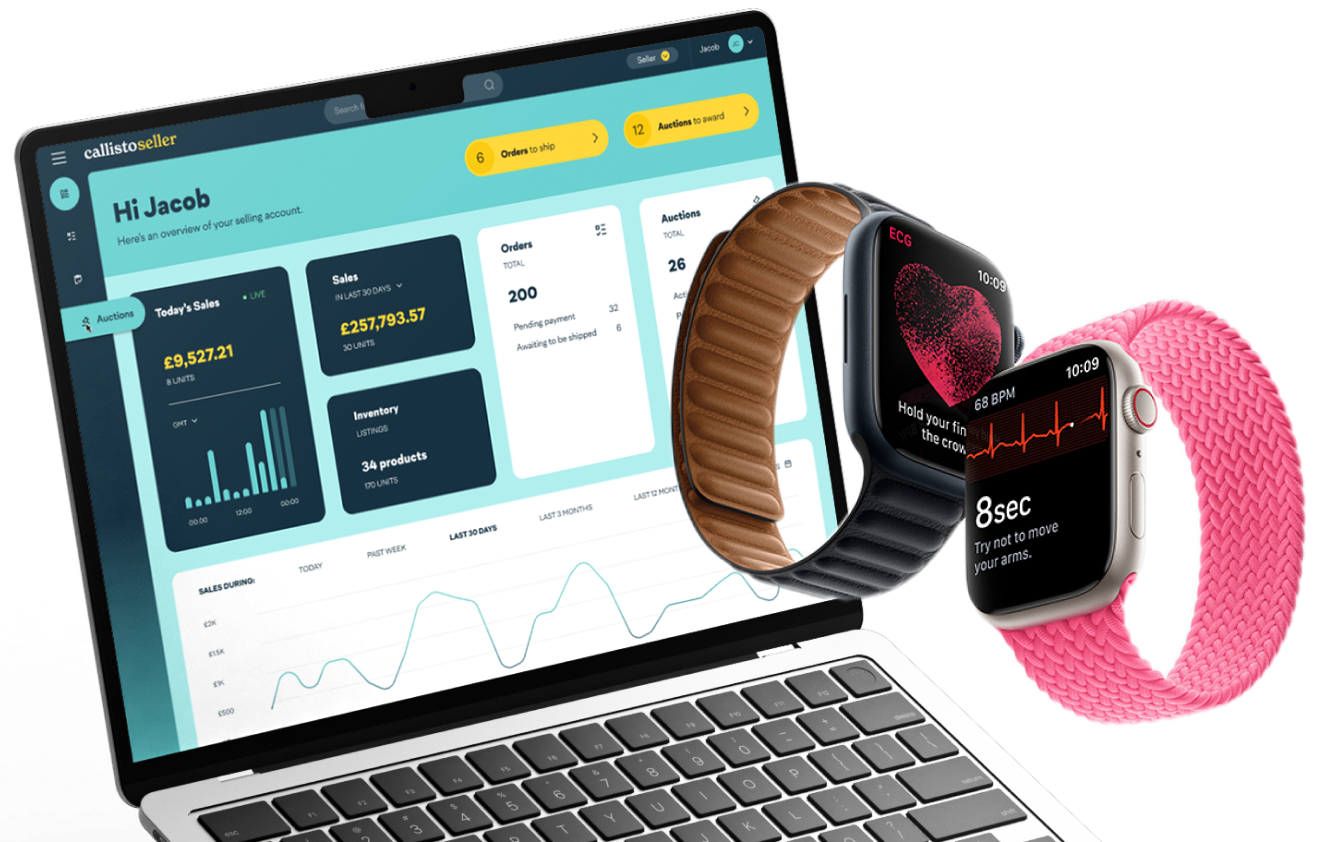Curious how Callisto can boost your business?
Book a demo to explore our platform and experience the benefits of smart trading.
%20-%20Blog%20image%20(Wholesale%20Tech%20Jan25).png?width=2400&height=1557&name=Callisto%20(1920x1080)%20-%20Blog%20image%20(Wholesale%20Tech%20Jan25).png)
Dane Marshall
Jan 2025
The global shift toward sustainability has created unique opportunities in the tech industry, particularly for businesses operating in wholesale tech. The circular economy, where products are reused, refurbished and recycled, is reshaping how companies approach inventory management, supply chains and market potential.
The Circular Economy's impact on tech
The Ellen MacArthur Foundation highlights that a circular economy could generate $4.5 trillion in global economic benefits by 2030. In tech, this model thrives by recirculating devices and reducing reliance on finite resources. Companies like Apple have pledged to achieve carbon neutrality and transition to 100% recycled materials in products by 2030.
For wholesalers, this movement opens up avenues to access steady supplies of pre-owned and refurbished devices. The demand for such products is growing rapidly, driven by businesses and consumers seeking cost-effective and sustainable technology. A study by Deloitte found that 73% of millennials are willing to spend more on sustainable products, a trend mirrored in the rising demand for refurbished electronics.
A growing market for wholesalers
As of 2023, the refurbished smartphone market alone accounted for 282 million devices sold globally, a number set to grow by 10% annually (IDC). Wholesale distributors that incorporate secondary and refurbished inventory stand to capture new customer bases by offering sustainable alternatives to traditional retail.
5 ways how tech wholesalers can adapt:
1. Use a trusted marketplace
Platforms with secure payment systems and transparent device grading standards are critical for building confidence in transactions. Research by PwC shows that trust in supplier grading directly correlates with stronger client relationships and reduced return rates. Choosing marketplaces that enforce KYC/KYS compliance and Escrow protection minimizes risk and supports growth.
2. Diversify product lines:
Expand into high-demand categories like refurbished wearables, gaming tech, and smart accessories to capture new market segments. The wearables market alone is projected to grow at 14.6% CAGR through 2030, driven by increasing consumer adoption of fitness trackers and smartwatches (Grand View Research). Diversification helps meet evolving customer preferences and ensures relevance in a competitive landscape.
3. Focus on inventory availability:
Reliable stock is essential for meeting demand. Opt for marketplaces with consistent supply and global access to verified sellers. Consistent availability ensures you can maintain customer satisfaction while scaling operations, particularly in competitive or time-sensitive markets.
4. Leverage flexible buying options:
Platforms that offer a range of purchasing methods, including auctions for competitive pricing, catalogs with fixed prices, and the ability to make bulk offers, provide businesses with the freedom to trade in ways that suit their unique needs and evolving market demands.
5. Tap into sustainability:
Showcasing efforts to extend product life cycles and reduce electronic waste can resonate with environmentally conscious customers. Studies show that sustainable practices influence purchase decisions, especially in younger demographics (Forbes).
Final thoughts
The circular economy represents a shift in wholesale tech. By aligning operations with sustainable practices and adopting innovative technologies, businesses can not only adapt to market trends but also lead the charge toward a greener future.
Book a demo
Interested in learning more? Book a demo with our team to sign up and start purchasing today.
Callisto. Trust in every trade.

Book a demo to explore our platform and experience the benefits of smart trading.

Digital marketplaces now sit at the centre of secondary tech trading. What once relied on personal n...
17-12-2025
%20-%20Blog%20image%201%20-%20June%2025-1.png?width=405&height=200&name=Callisto%20(1920x1080)%20-%20Blog%20image%201%20-%20June%2025-1.png)
In the world of B2B tech trading, confidence is everything. When you’re sourcing large volumes of de...
5-08-2025
%20-%20Blog%20image%202%20-%20June%2025-1.png?width=405&height=200&name=Callisto%20(1920x1080)%20-%20Blog%20image%202%20-%20June%2025-1.png)
When you’re in the business of buying and reselling tech, control matters. And that’s what some trad...
22-07-2025